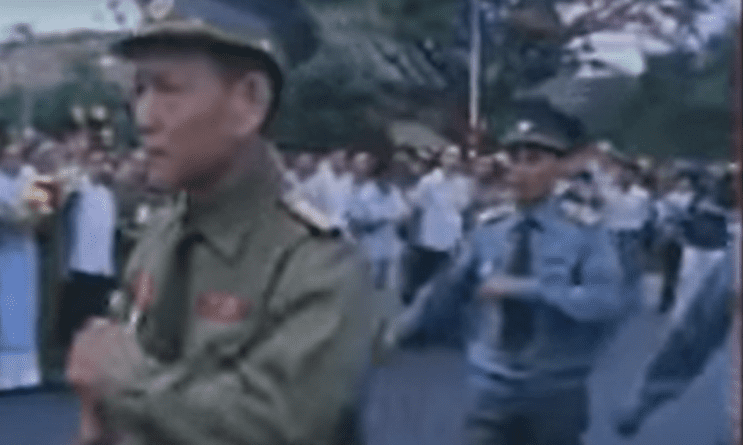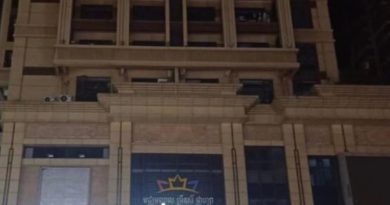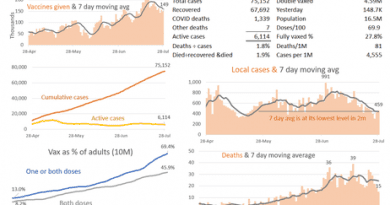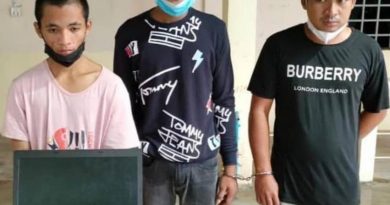This Week In Cambodian History- September 17-23
On September 18, 1949, King Norodom Sihanouk dissolved the National Assembly.
On September 18, 1967, following a diplomatic crisis when Red Guards took control of the Chinese Embassy in Phnom and started openly promoting Maoism, the Chinese Prime Minister Zhou Enlai met the Cambodian ambassador in Beijing and made a personal appeal to his “old friendship” with Sihanouk in order to calm things down. The crisis was blamed on the upheavals of the Cultural Revolution.
September 18, 1999, former Khmer Rouge leaders Ieng Sary and Nuon Chea, now allies of the government, issued a statement suggesting the possibility of a return to civil war if a Khmer Rouge tribunal is held. The statement also criticized demands by human rights groups and opposition politicians that Nuon Chea and Ieng Sary be tried.
On September 19, 2007, 81 year old Nuon Chea was arrested at his home in Pailin and flown to the Khmer Rouge Tribunal in Phnom Penh, which charged him with war crimes and crimes against humanity.
On September 20, 1949, Ieu Koeus became Prime Minister, replacing Prime Minister by Yem Sambaur. Koues was replaced 9 days by….. Yem Sambaur. Koeus was assassinated the following January.
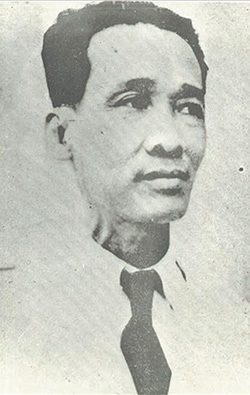
September 20, 1999, while attending the 54th UN General Assembly, Hun Sen delivered a document to UN Secretary-General Kofi Annan outlining three options for UN involvement in a tribunal: 1) provide a legal team and participate in a tribunal conducted in Cambodia’s existing courts; 2) provide legal advice without direct participation in the tribunal; 3) withdraw completely from the proposed tribunal.
On September 21, 1959, Cambodian Foreign Minister Son Sann met with American officials at the Waldorf Astoria Hotel, New York. They discussed aid to Cambodia and the whereabouts of Sam Sary, wanted in connection with a bomb blast that attempted to kill Sihanouk. READ

On September 21, 1976, despite issues between the Cambodian and Vietnamese communist governments, the first air service connecting Hanoi and Ho Chi Minh City with Phnom Penh was established.
On September 21, 1989, Vietnam began its final withdrawal of troops from Cambodia, ending a decade of occupation.
On September 21, 1992, the Secretary-General reported to the Security Council that UNTAC had acquired a powerful momentum. Its presence had already achieved a profound and probably lasting impact on Cambodia. UNTAC was close to full deployment over most of the territory of Cambodia, including a strong police presence extending down to village level. Supervision and control over the administrative structures of the country had been established and progressively strengthened, and Cambodians continued to be informed and educated on human rights issues. More than 115,000 refugees and displaced persons had been repatriated.
On September 21, 1993, the Cambodian Constitution was adopted by the Constitutional Assembly in Phnom Penh at its 2nd Plenary session. The vote was passed 113 in favor and 5 against, with two abstentions. The document was signed by Son San.
On September 22, 1959, the US Ambassador in Saigon continued fretting about the animosity between President Diem and Prince Sihanouk. READ
On September 22, 1992, the Supreme National Council set a country-wide moratorium on the export of logs from Cambodia in order to protect the country’s natural resources, and requested UNTAC to take appropriate measures to secure the implementation of this moratorium. The Council requested SNC to consider adopting a similar moratorium on the export of minerals and gems. In addition, it called for measures to prevent the supply of petroleum products from reaching areas occupied by any Cambodian signatory party not complying with the military provisions of the Paris Agreements. The Council invited UNTAC to establish all necessary border checkpoints, as recommended by the Secretary-General.
On September 22, 1997, the Department of Intellectual Property of the Ministry of Commerce was established under Sub-Decree No. 54 by the Royal Government of Cambodia.
On September 23, 1961, a memo was sent to President Kennedy, offering advice on his upcoming meeting with Sihanouk. READ
On September 23, 1999, returning from talks with UN Secretary-General Kofi Annan on how to proceed with trials for Pol Pot’s former henchmen, top government officials vowed to proceed on their own terms. Instead of assembling an international-style tribunal proposed by the UN, Cabinet Minister Sok An said the government will seek advice from independent US and French legal experts to secure the legitimacy critics say Cambodian courts lack. “We will continue to work on our own draft,” said Sok An, “I promise to keep [the UN] informed on our progress.”

